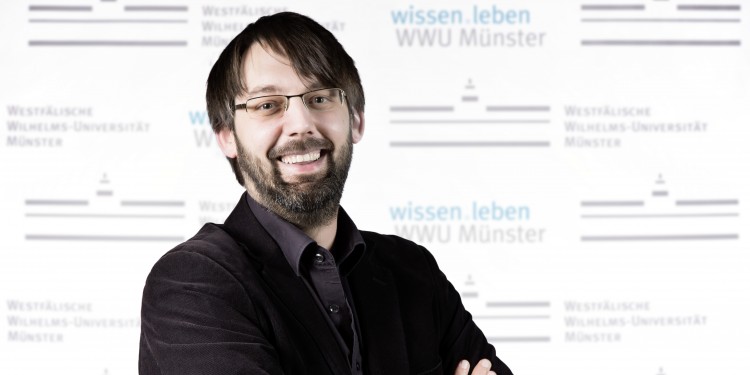
Prof. Bernd Schlipphak is the ombudsman for junior researchers in the Education and Social Science Faculty
Prof. Bernd Schlipphak has been the ombudsman for junior researchers in the Education and Social Science Faculty at the University of Münster since 2015 and, as such, has an open ear not only for PhD students and post-docs in Faculty 06, but also for their supervisors. Kathrin Nolte spoke to Bernd Schlipphak about his duties and the importance of his work as a mediator.
What are your duties as an ombudsman?
In the Education and Social Science Faculty, I’m the first person to contact if there are any problems between junior researchers and supervisors. Then I take an informal approach, without exerting any pressure, to try and mediate between the parties involved. My work so far has shown me that often a few strategic tips are enough to solve any problems. As soon as any serious conflicts occur, I do of course refer people to the University’s official authorities such as the Staff Council, the Gender Equality Officer or the Psychosocial Advice Centre.
Why is it important that there is an ombudsman for junior researchers?
The Education and Social Science Faculty had been thinking for a long time about how we should handle issues relating to junior researchers and how to work together with them. I’m talking here about aspects relating both to work and to supervision. And so, in 2011, we introduced our Recommendations on Cooperation with Non-Professorial Researchers. These were fleshed out in the Guidelines for Academic Supervision. Both documents call for the appointment of an ombudsman to see that these regulations are observed. What’s important is that the guidelines apply just as much to supervisors as to junior researchers. In other words, any supervisor can also contact me if a PhD student isn’t complying, and communication between the two is no longer possible.
What sort of issues can people can bring to you?
Any which arise from a conflict between a real-life situation and the regulations and guidelines I just mentioned. The majority of the problems I have dealt with so far, though, result from people having the double function of supervisor and employer. This can lead to job-related and academic issues getting mixed up with each other, which mustn’t happen. This, in turn, is a structural problem at universities in Germany. If for example anyone believes that their supervisor is exerting too great an influence on their research work, and that they risk losing their job as a result, they can come to me. In such cases, not only one-to-one discussions but also three-way meetings are possible. So far, however, those concerned have always shied away from such a meeting.
Do you come into conflict with other professors as a result of your work?
No, that hasn’t happened so far. As far as I’m concerned, one thing that’s really important is not to become confrontational, but rather to seek common ground. But I have to say that – fortunately – I’ve had only relatively few enquiries. In other words, there don’t currently seem to be many problems in the Education and Social Science Faculty.
Do you also get enquiries from other faculties at the University? And how can you help in such cases?
Yes, I do get such enquiries. Officially, of course, I can’t do anything as I’m not authorised to. But I do help in the search for other possible people to contact – for example, the offices of the relevant vice-deans responsible for research and junior researchers.
